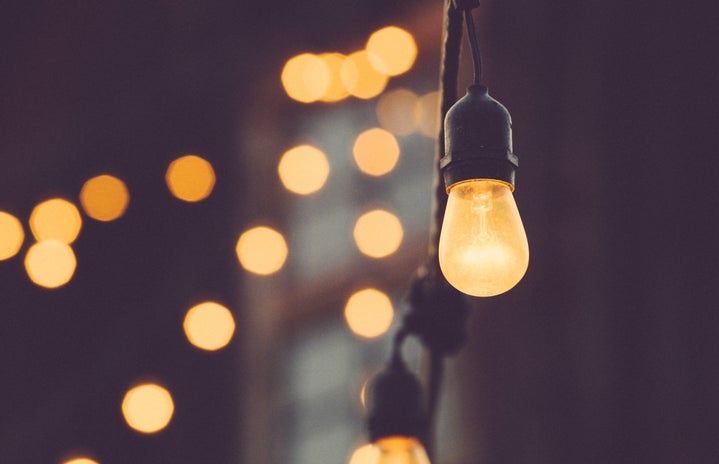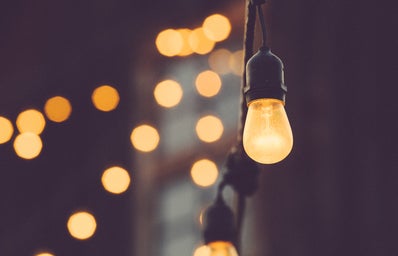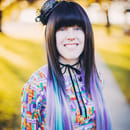At first, it didn’t register. I didn’t understand. Information came at me in flashes; every heartbeat there was something else for me to read. Ba-bump. A shooting in Florida. Ba-bump. A massacre in a gay nightclub in Orlando. Ba-bump. 20 dead. Ba-bump. No. Ba-bump. 50 dead. Ba-bump. Largest gun massacre in US History. Ba-bump. Ba-bump. Ba-bump.
My mother and I are having lunch in a deli. She points to the TV behind me and says, “It’s just so terrible, what’s happening in Florida.”
I know what I am about to see before I turn around. It’s what I saw all over my newsfeed this morning and what’s been blaring from our house’s television all day: 50 dead, 53 injured in a gay nightclub in Orlando, Fla.
I know she is sincere; she looks at the body count and feels a mother’s pain for all those children who were lost to this tragedy, this hate crime, this terrorist attack. She doesn’t know about me.
“Yeah,” I say, “It’s so sad.” This is all I can say. Any other word out of my mouth would result an emotional breakdown in the middle of this deli. I wouldn’t be able to explain to her why I am falling to my knees as I am forced to watch my community pick itself up after this most recent massacre. I want to fold myself into my mother like a child, but I know I can’t, not without her asking why, not without having to answer a million questions.
It is a terrifying and heartbreaking thing, to watch your LGBTQ+ siblings suffer for no other reason than that they are gay and existing at the same time. And here you are sitting miles away, unable to do anything about it, at a complete loss.
To be a closeted LGBTQ+ person during a tragedy like this is to always be silent. People kill us and you can’t say anything. You watch yourself die on television, read it in books and you have to pretend it doesn’t upset you that your life is meaningless both in fiction as well as in real life.
Suddenly, nowhere is safe. Not a church, not a nightclub, not our own bodies. We have become public property to be torn down, killed off, done away with, and it is terrifying. Our sanctuaries have been turned into slaughterhouses. June, this month of celebration and pride, turned into a funeral march.
To be in the closet when 50 of your LGBTQ+ siblings are brutally murdered means you cannot outwardly mourn, you cannot grieve, you cannot let anyone know how deeply and severely this affects you.
I tell my parents, “A mass shooting in a gay club during Pride month? This is a hate crime.”
My dad shakes his head, tells me, “This was more than a hate crime.”
But, why isn’t a hate crime enough? Why aren’t 50 of my people, dead, enough for this horrendous act of hatred and evil to be considered a hate crime? Why isn’t that serious enough? I want to scream at him for saying this. I want to rip my hair out. I want to cry. I want to clutch my chest and weep for these people I have never met. But still I cannot say anything. I internalize my grief and my sorrow, my rage and my pain. I swallow it and further back into the closet I go.
Any one of those people could have been me. They could have been any one of us. They could be one of us in the future. This won’t be the last time our community is attacked, but I cannot be outwardly scared or express my fear of being visibly queer in public. All I can do is continue to hide as the bodies pile up.
The Orlando Pulse shooting proved that to be out and LGBTQ+ is an act of bravery, to hold hands with your partner, to kiss in public, to exist and be queer is a sublime act of courage, and to be deviant is punishable by death. We have learned that there are consequences for our existence. We have every right to be terrified. Our anger is real and valid. Our sadness is palpable.
To those of us who cannot mourn openly, I see you and I am sorry. I am sorry that this may have shoved you further back into the closet than you already were. I’m sorry the world is so dangerous for us. I wish I could make it better.
Know this: whether you are out or not, your very existence is an act of defiance. The fact that you woke up this morning is just one small part of a larger rebellion against a world that would otherwise see you dead. Maybe you can’t say anything, but you are not silent. I hear you. I hear you.
But the dead remain dead, so we lift our hands to them, these people we knew and didn’t know, these kin of ours. Even though the world is a little darker and our hearts heavier, but they are still beating. We heft them onto our shoulders and still we march, always towards revolution, always towards a future where we no longer have to fight, where nothing is a closet, where pride is not deviant, where we lift our hands to the sky and dance once again, ba-bump, unafraid.


